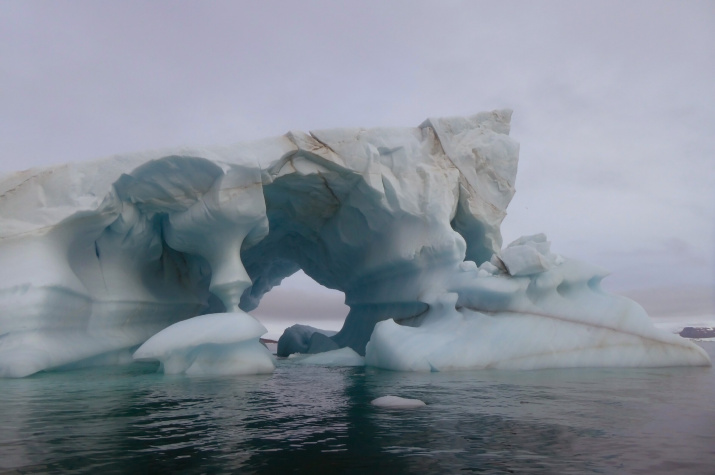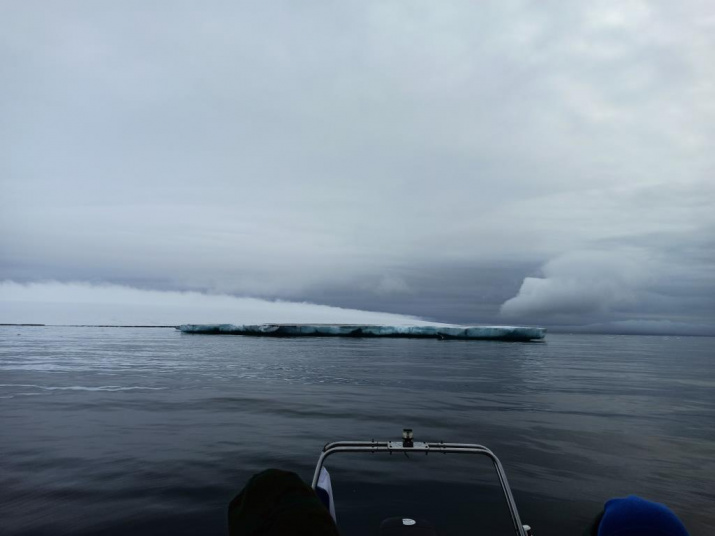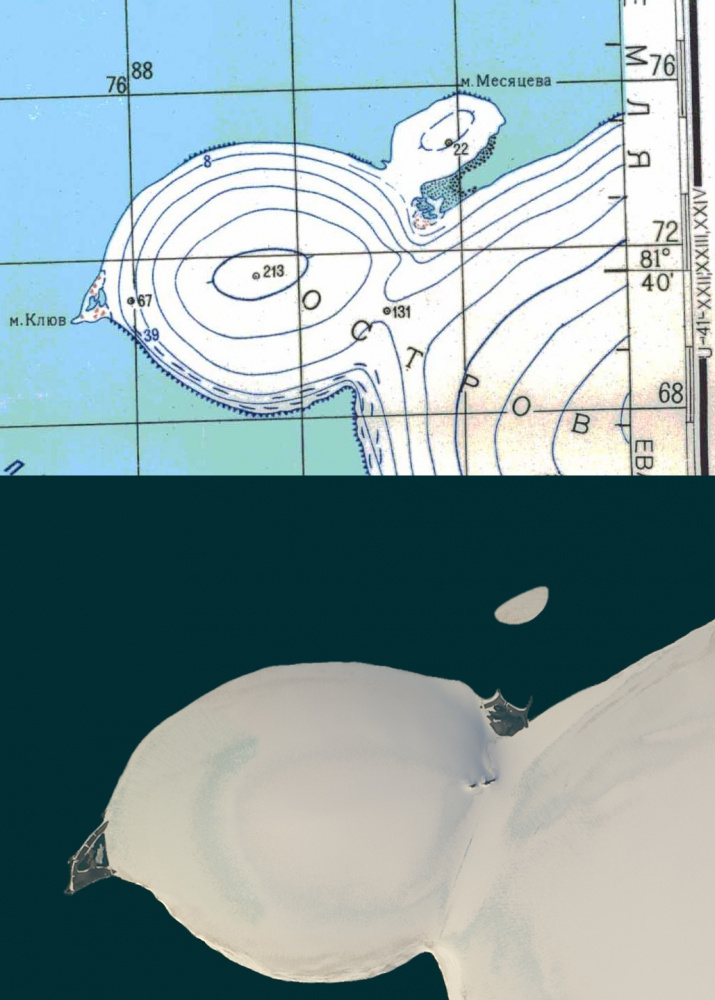A strait three kilometers wide separated Cape Mesyatsev from Eva-Liv Island in the Franz Josef Land Archipelago. The peninsula indicated on the map has almost completely melted, which was confirmed in 2021 by the employees at Russian Arctic National Park during an expedition to study walruses.
Most of the islands in the Franz Josef Land are composed of perennial ice. Because of this, it is sometimes very difficult to determine where the land ends and the sea begins. At one time, even the famous Fridtjof Nansen made a mistake. The Norwegian polar explorer, who first explored these places back in 1895, was confident that he had found two islands. He named the discovered pieces of land after his daughter Liv and wife Eva.
However, in 1932, the members of the Soviet expedition on the ship "Nikolai Knipovich" found out that Liv is actually only a peninsula on the western tip of Eva. Since then, the island has had a double name.
In the era of global warming, the island's area decreases every year. Now it is difficult to predict what its shape will be, even in the near future. The exploration around Eva-Liv by the Russian Arctic employees on the “Zodiac” boat showed that the time had come to clarify the existing maps.
"Observations have led to the conclusion that the cape was completely glacier. The remaining part of it is now a piece of glacier that stands on a sandbank. This discovery requires the attention of hydrographic management and changes in sailing directions. The map of this island was compiled in the middle of the last century, and now it is outdated," said Alexander Kirilov, director of Russian Arctic National Park.
According to the head of the department for preserving the historical and cultural heritage at Russian Arctic National Park Yevgeny Yermolov, the melting of glaciers is not a matter of one year. Reports that the peninsula with Cape Mesyatsev separated from the island of Eva-Liv appeared back in 2017.
"This year we managed to confirm this information. A reliable proof is photos and videos from a quadcopter, which were made by Alexander Barymova, an employee at the Marine Research Center of Moscow State University, and shared with us," Ermolov said.
Due to climate change, the outlines of all glaciers in the Franz Josef Land are rapidly changing. According to the staff at Russian Arctic National Park, there are still many places on the archipelago for new geographical discoveries.



